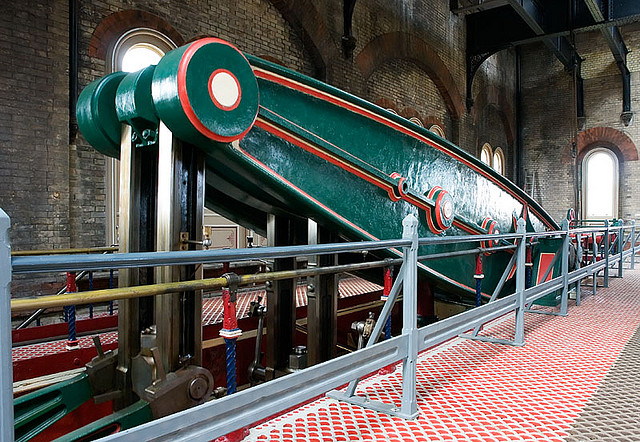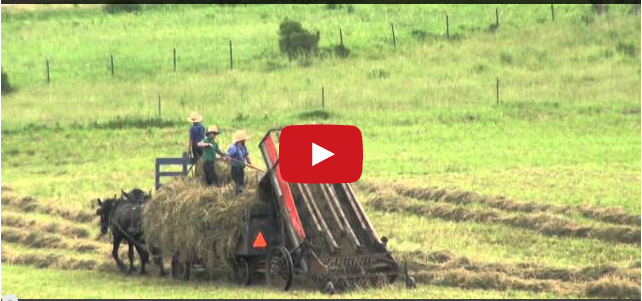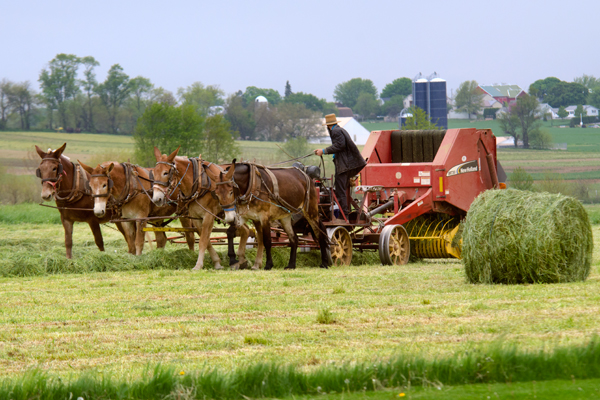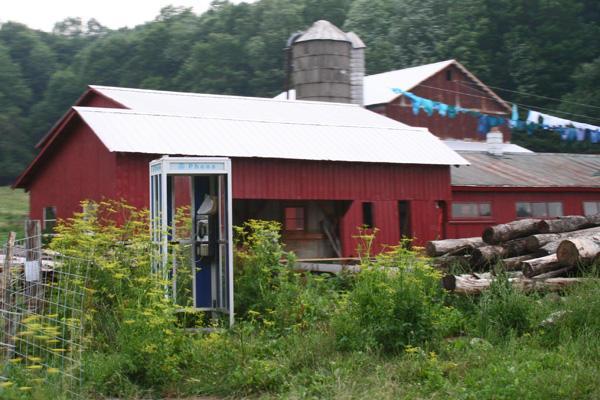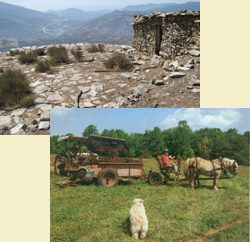« Reality 101: Some Notes on Teaching Humanity’s Predicament | Home | The holarchy of rules and the problem of silos of knowledge in the quest for the survival of humanity »
Clinging to the Titanic, or how to let go
By Karl North | February 20, 2017
- “A world ends when its metaphor has died” – Archibald MacLeish
- “Don’t be fooled by the idiotic exertions of the Red team and the Blue team. They’re just playing a game of “Capture the Flag” on the deck of the Titanic.”- James Kunstler
Political ecologist William Ophuls has researched the unsustainability of modern industrial society for several decades.[1] Recently he summarized our global predicament this way:
Modern civilization lives on depleting energy and borrowed time. Its day of reckoning rapidly approaches. If civilization itself is to survive, it must be inspired by a new ideal that renounces endless material acquisition and makes a virtue out of the necessity of living within our ecological means.[2]
In other words, the industrial economy is a one shot deal, an oil-fired short-lived spike like a sky rocket in the long reach of natural history. How many have digested that reality as it slides down and growls in the gut like a hot shot of bourbon? And if not, why not?
Ophuls’ day of reckoning is currently taking the form of a number of convergent global tipping points:
- Resource scarcity has increased to where extraction of the raw materials essential to industrial society has peaked or will imminently. Cheap fossil energy, the most important of these because it permits extraction at industrial scale of the others, peaked in the previous decade.
- Resource conflict, most notably in oil lands, has destabilized countries to where it is constricting the availability of the resources globally.
- Until now, tricks in financial management and exploitation of cheap labor have artificially held global energy and industrial production from dropping much, albeit at a higher price, but industrial society has run out of tricks. Financial ponzi schemes by uncontrolled central banks in collusion with governments have artificially salvaged some residual, localized economic growth by creating a series of economic bubbles in specific industries – housing, real estate, automotive, dot com, weapons. These temporary crutches are financial end games; they will not only self-destruct but also leave societies in worse shape than if they had not happened.
- Declining economic growth, driven ultimately by resource scarcity, is failing to fund the interest on debt that capitalist economies demand, which impedes private investment, which in turn accelerates economic decline in a positive feedback loop. The economies most trapped into the debt cycle are the first to experience economic meltdown.
- Pollution overloads that accompany unchecked resource consumption are an increasing cost that is dragging down the global economy.
A tipping point is a point in time when a trend gains runaway status: like a ship so close to hitting an iceberg it can no longer be stopped before there is long term or even permanent damage. Despite decades of warning from scientists, humanity has not been able to alter course from the above trends to avoid the inevitable. What causes us to cling to the Titanic? This essay will describe some of the mechanisms that keep us clinging, and suggest ways of advocating letting go that might make them attractive to a wider audience than they are getting now.
The culture of the Titanic
Every age has its guiding, reigning metaphor. In the era of the totalitarian church in Europe, one could call it divine kingship, or more generally, the rule of the divine Word. Since the Enlightenment, the reigning metaphor seems to have been the machine, which is perhaps short for the technologies born of reductionist science and its quasi-religion of endless material progress.
From the viewpoint of most of human history, the machine age and its culture is an anomaly. We have been tribal and local for most of our history, but have been taught that tribes are primitive and that only nation states are good. For most of history, natural resources were considered common wealth; in the machine age a minority has maximized their control of resources and persuaded us that it is for our own good. This minority has replaced conceptions of the world that arise from local experience with a worldview that they manufacture to serve their interests. Early in human history, trade began as a gift economy, more about mutual benefit than calculated gain. In the machine age the custom is to pursue never-ending profit for its own sake, to maximize consumption at all costs, to generally accept technological solutions for our problems, and to accept a fraudulent financial system of semi-legalized theft, prohibited in earlier ages as usury.
A new metaphor
As the age of the machine goes into its end game, depleting the very resources required to sustain it, humanity needs a new guiding metaphor, one that rectifies the failings of the machine age and its worldview, and helps us choose our options in light of new knowledge of how the world works and our place in it.
The new knowledge in question – actually old knowledge given new value by science – acknowledges the importance of the connectedness of the world and the rule of natural laws, the laws of ecosystems. Hence the appropriate metaphor to midwife a new age of human history might be the age of ecology, writ large enough to encompass as part of ecosystems, for the first time in centuries, all the social endeavors of our species. In other words, in language even economists could comprehend, we would concede that humanity is a wholly-owned subsidiary of Mother Nature.
The deeply embedded beliefs and expectations of the machine age, as described above, may die a long, slow death. Hence acceptance of the age of ecology and its laws may not occur without some help from religion. The mayhem and social chaos that attended the fall of previous civilizations caused humans to find refuge in religious beliefs. As the Pax Romana fell apart, European society found an anchor in the Christian Church. This time, the world’s monotheisms, steeped in unecological, anthropocentric beliefs, will be useless. In fact populations that cling to them will spike and then self-extinguish as their attempts at retaining control over nature destroy their resource base. Like technology, religion can easily work for good or ill. However, if some sort of religious response is inevitable, it is worth considering what alternative creed might best assist the birth of the age of ecology.
To embrace the necessity of a low energy, post-industrial world will require a major shift in beliefs and values – a new cultural paradigm. Many pre-industrial faith-based cultures that attempt to conform to ecological and tribal law exist as models reconstructed from history. One example worth exploring for what it can teach us is the historical experience of the Amish and Mennonite communities, convenient because they live among us today. These are not folk communities stuck in time. Their technologies and way of life are conscious choices that derive directly from their values, not from ignorance or backwardness. Their history is one of continuous struggle to invent ways to continue to practice their values under pressure from the outside world with which they must trade and compete economically. It is precisely for this reason that they may be worth learning from. As groups try to bail from Titanic and seek relocalized ways of survival, they too will need to struggle against the pressures of the dying industrial economy and its institutions, and against its residual culture within themselves.
The Amish experience
Complete economic autarchy was never a goal of Amish communities. Hence they had to continually adapt their technological choices to both their collective values and the changing technologies they are competing with in the external economy. In the process they developed a keen understanding of the social implications of adopting technologies like telephones, electricity, and motor vehicles, in sharp contrast to the English (as they call us), who have been taught to judge technologies only for their convenience or economic profit.
The Amish hold life in an agrarian community to be their ideal. They believe it puts them in close contact with the creation and therefore with the creator’s commandments. In the same way, their system of farming reflects their respect for the earth as the work of the creator. They use horses and mules as part of an integrated crop/livestock farming system that is more ecologically sustainable than industrial farming systems. Thus they share some farming goals in common with organic farmers and increasingly participate in the organic movement. A Mennonite dairy farmer group once invited me to present a day-long seminar to share with them my experience as a certified organic sheep dairyman using draft animal power. They in turn have much to teach organic farmers about simpler technologies and more frugal, communitarian ways of living.
Draft animal power adds to the measure of sovereignty the Amish seek as a protection against the toxicities of the industrial way of life. The Amish control most of its technology, from animal breeding to the manufacture of animal powered machinery for farming and transport. Thus their communities are relatively independent of an auto industry that is one of the most resource-wasteful products of the industrial era.
The Amish seek economic security in community strength instead of technological development and expansion of farm size. Their prohibition of movable tractors tends to limit farm size to less than 100 acres, keeps neighbors close and relationships strong. Yet they continue to improve horse-drawn machinery in ways that allow them to compete in the external economy without undermining the community.
https://www.youtube.com/watch?v=c2mPnAjOQ4A
In Ohio they even adopted machinery improvements before the English. When the use of the telephone became necessary for business communication, they allowed it in booths far from farmhouses and buildings, to prevent it from replacing face-to-face communication among themselves and thus weakening community relationships. The Amish ban on connection to the electric grid is intended to maintain as much local sovereignty – control over the shape of their community – as possible wherever dependence on the outside world is not absolutely necessary.
The Amish are careful to protect key social institutions like the rearing and education of children from outside influence. As long as English schools still had the rural character of the one room schoolhouse, they sent their children there for the elementary grades and then brought them back to farm and workshop for apprentice-style education. But when English schools began to consolidate, taking children far from home and providing a more urban oriented program, they created their own parochial schools. They were acutely aware of the consequences of habituating their children to corrosive influences like bus riding, electrified buildings and indoor plumbing.
Amish values of simplicity and community are manifest in the rejection of status consumption, obvious in their undifferentiated clothing and plain, functional buildings and household interiors. Such subtle status seeking as occurs is limited to areas that also stress their positive values, like well-kept barns and animals and beautiful front flower gardens.
In sum, how can the Amish example help us develop a creed for the energy descent? The Amish long ago created their unique interpretation of Christianity, which provides the values that inform decisions about farming and other livelihoods, technologies, and community relations and lifestyles. Working in reverse of the Amish, humanity on the energy down slope needs to work out a faith or at least a belief system that encourages and rationalizes the changes in all these areas of life that increasing resource scarcity will impose.
A number of the elements of the Amish credo are made to order for the energy descent. As energy-intensive agriculture gives way to a labor-intensive form, our faith will need to venerate farming and rural life instead of demeaning it as we do now. Community will again become necessary for economic security, so Amish ways of building strong communities may be useful. As many technologies become too energy-costly, we will have to develop the same ability as the Amish to discern which to let go and which will serve us well in a low energy world. Communities will need to become more economically self-reliant and resource input self-sufficient, so the Amish quest for sovereignty – autonomy by deliberate defection from the outside world – will be a useful example as the industrial economy becomes increasingly dysfunctional. The Amish model demonstrates the possibility of frugality without abject poverty. Taken together, these beliefs and values provide a good start on a creed to fit the age of ecology.
Part of the answer may be the alternative American dream that exists in the back of everyone’s mind. It surfaced in the dropout movement of the 1960s, motivated then by a desire to escape mainstream society, its values and occupational straightjacket. It is beginning to surface again due to a powerful new incentive: the need to build an alternative as the industrial system melts away. Hence guiding slogans of the sixties like Small Is Beautiful[3] are gaining new impetus. Ecological imperatives will ultimately compel us to live in smaller, simpler settings congenial to the political ideals of Rousseau and Jefferson – somewhere between the Dunbar Number (150) and the community of seven thousand of Alexander’s A Pattern Language[4]. Something like a Gaia religion that embraces the systemic, integrated nature of life on earth may appear if our species should be so lucky.
Today, a small population is beginning to boldly explore those options again, as happened in the Sixties. A courageous few are jumping ship, beginning to walk away from the industrial civilization and distance themselves from its institutions – its urban clusters, the market economy (especially the parasitic FIRE economy: finance, insurance and real estate), centralized government, mass media, formal schooling and the reductionist intellectual culture. Although they tend to explain themselves in rational terms, I think the root motivation is more a shift in gut values. Probably the only way this model will take root in a larger population will be by taking on religious overtones, becoming a faith for the age of ecology.
[1] Ophuls, William. 1977. Ecology and the Politics of Scarcity.
[2] Ophuls, William. 2013. Plato’s Revenge: Politics in the Age of Ecology.
[3] E. F. Schumacher, 1973.
[4] Alexander, Christopher. 1976
Topics: Social Futures, Peak Oil, Relocalization, Uncategorized | No Comments »
